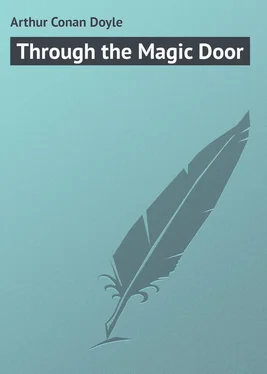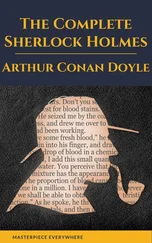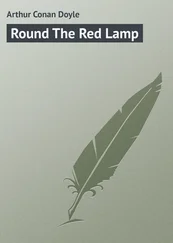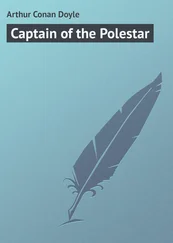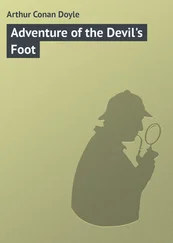Arthur Conan Doyle - Through the Magic Door
Здесь есть возможность читать онлайн «Arthur Conan Doyle - Through the Magic Door» — ознакомительный отрывок электронной книги совершенно бесплатно, а после прочтения отрывка купить полную версию. В некоторых случаях можно слушать аудио, скачать через торрент в формате fb2 и присутствует краткое содержание. Жанр: foreign_prose, на английском языке. Описание произведения, (предисловие) а так же отзывы посетителей доступны на портале библиотеки ЛибКат.
- Название:Through the Magic Door
- Автор:
- Жанр:
- Год:неизвестен
- ISBN:нет данных
- Рейтинг книги:3 / 5. Голосов: 1
-
Избранное:Добавить в избранное
- Отзывы:
-
Ваша оценка:
- 60
- 1
- 2
- 3
- 4
- 5
Through the Magic Door: краткое содержание, описание и аннотация
Предлагаем к чтению аннотацию, описание, краткое содержание или предисловие (зависит от того, что написал сам автор книги «Through the Magic Door»). Если вы не нашли необходимую информацию о книге — напишите в комментариях, мы постараемся отыскать её.
Through the Magic Door — читать онлайн ознакомительный отрывок
Ниже представлен текст книги, разбитый по страницам. Система сохранения места последней прочитанной страницы, позволяет с удобством читать онлайн бесплатно книгу «Through the Magic Door», без необходимости каждый раз заново искать на чём Вы остановились. Поставьте закладку, и сможете в любой момент перейти на страницу, на которой закончили чтение.
Интервал:
Закладка:
Is it that the higher emotions are not there? Or is it that they are damped down and covered over as too precious to be exhibited? Something of each, perhaps. I once met the widow of the man who, as a young signal midshipman, had taken Nelson's famous message from the Signal Yeoman and communicated it to the ship's company. The officers were impressed. The men were not. "Duty!" they muttered. "We've always done it. Why not?" Anything in the least highfalutin' would depress, not exalt, a British company. It is the under statement which delights them. German troops can march to battle singing Luther's hymns. Frenchmen will work themselves into a frenzy by a song of glory and of Fatherland. Our martial poets need not trouble to imitate – or at least need not imagine that if they do so they will ever supply a want to the British soldier. Our sailors working the heavy guns in South Africa sang: "Here's another lump of sugar for the Bird." I saw a regiment go into action to the refrain of "A little bit off the top." The martial poet aforesaid, unless he had the genius and the insight of a Kipling, would have wasted a good deal of ink before he had got down to such chants as these. The Russians are not unlike us in this respect. I remember reading of some column ascending a breach and singing lustily from start to finish, until a few survivors were left victorious upon the crest with the song still going. A spectator inquired what wondrous chant it was which had warmed them to such a deed of valour, and he found that the exact meaning of the words, endlessly repeated, was "Ivan is in the garden picking cabbages." The fact is, I suppose, that a mere monotonous sound may take the place of the tom-tom of savage warfare, and hypnotize the soldier into valour.
Our cousins across the Atlantic have the same blending of the comic with their most serious work. Take the songs which they sang during the most bloody war which the Anglo-Celtic race has ever waged – the only war in which it could have been said that they were stretched to their uttermost and showed their true form – "Tramp, tramp, tramp," "John Brown's Body," "Marching through Georgia" – all had a playful humour running through them. Only one exception do I know, and that is the most tremendous war-song I can recall. Even an outsider in time of peace can hardly read it without emotion. I mean, of course, Julia Ward Howe's "War-Song of the Republic," with the choral opening line: "Mine eyes have seen the glory of the coming of the Lord." If that were ever sung upon a battle-field the effect must have been terrific.
A long digression, is it not? But that is the worst of the thoughts at the other side of the Magic Door. You can't pull one out without a dozen being entangled with it. But it was Scott's soldiers that I was talking of, and I was saying that there is nothing theatrical, no posing, no heroics (the thing of all others which the hero abominates), but just the short bluff word and the simple manly ways, with every expression and metaphor drawn from within his natural range of thought. What a pity it is that he, with his keen appreciation of the soldier, gave us so little of those soldiers who were his own contemporaries – the finest, perhaps, that the world has ever seen! It is true that he wrote a life of the great Soldier Emperor, but that was the one piece of hackwork of his career. How could a Tory patriot, whose whole training had been to look upon Napoleon as a malignant Demon, do justice to such a theme? But the Europe of those days was full of material which he of all men could have drawn with a sympathetic hand. What would we not give for a portrait of one of Murat's light-cavalrymen, or of a Grenadier of the Old Guard, drawn with the same bold strokes as the Rittmeister of Gustavus or the archers of the French King's Guard in "Quentin Durward"?
In his visit to Paris Scott must have seen many of those iron men who during the preceding twenty years had been the scourge and also the redemption of Europe. To us the soldiers who scowled at him from the sidewalks in 1814 would have been as interesting and as much romantic figures of the past as the mail-clad knights or ruffling cavaliers of his novels. A picture from the life of a Peninsular veteran, with his views upon the Duke, would be as striking as Dugald Dalgetty from the German wars. But then no man ever does realize the true interest of the age in which he happens to live. All sense of proportion is lost, and the little thing hard-by obscures the great thing at a distance. It is easy in the dark to confuse the fire-fly and the star. Fancy, for example, the Old Masters seeking their subjects in inn parlours, or St. Sebastians, while Columbus was discovering America before their very faces.
I have said that I think "Ivanhoe" the best of Scott's novels. I suppose most people would subscribe to that. But how about the second best? It speaks well for their general average that there is hardly one among them which might not find some admirers who would vote it to a place of honour. To the Scottish-born man those novels which deal with Scottish life and character have a quality of raciness which gives them a place apart. There is a rich humour of the soil in such books as "Old Mortality," "The Antiquary," and "Rob Roy," which puts them in a different class from the others. His old Scottish women are, next to his soldiers, the best series of types that he has drawn. At the same time it must be admitted that merit which is associated with dialect has such limitations that it can never take the same place as work which makes an equal appeal to all the world. On the whole, perhaps, "Quentin Durward," on account of its wider interests, its strong character-drawing, and the European importance of the events and people described, would have my vote for the second place. It is the father of all those sword-and-cape novels which have formed so numerous an addition to the light literature of the last century. The pictures of Charles the Bold and of the unspeakable Louis are extraordinarily vivid. I can see those two deadly enemies watching the hounds chasing the herald, and clinging to each other in the convulsion of their cruel mirth, more clearly than most things which my eyes have actually rested upon.
The portrait of Louis with his astuteness, his cruelty, his superstition and his cowardice is followed closely from Comines, and is the more effective when set up against his bluff and war-like rival. It is not often that historical characters work out in their actual physique exactly as one would picture them to be, but in the High Church of Innsbruck I have seen effigies of Louis and Charles which might have walked from the very pages of Scott-Louis, thin, ascetic, varminty; and Charles with the head of a prize-fighter. It is hard on us when a portrait upsets all our preconceived ideas, when, for example, we see in the National Portrait Gallery a man with a noble, olive-tinted, poetic face, and with a start read beneath it that it is the wicked Judge Jeffreys. Occasionally, however, as at Innsbruck, we are absolutely satisfied. I have before me on the mantelpiece yonder a portrait of a painting which represents Queen Mary's Bothwell. Take it down and look at it. Mark the big head, fit to conceive large schemes; the strong animal face, made to captivate a sensitive, feminine woman; the brutally forceful features – the mouth with a suggestion of wild boars' tusks behind it, the beard which could bristle with fury: the whole man and his life-history are revealed in that picture. I wonder if Scott had ever seen the original which hangs at the Hepburn family seat?
Personally, I have always had a very high opinion of a novel which the critics have used somewhat harshly, and which came almost the last from his tired pen. I mean "Count Robert of Paris." I am convinced that if it had been the first, instead of the last, of the series it would have attracted as much attention as "Waverley." I can understand the state of mind of the expert, who cried out in mingled admiration and despair: "I have studied the conditions of Byzantine Society all my life, and here comes a Scotch lawyer who makes the whole thing clear to me in a flash!" Many men could draw with more or less success Norman England, or mediaeval France, but to reconstruct a whole dead civilization in so plausible a way, with such dignity and such minuteness of detail, is, I should think, a most wonderful tour de force. His failing health showed itself before the end of the novel, but had the latter half equalled the first, and contained scenes of such humour as Anna Comnena reading aloud her father's exploits, or of such majesty as the account of the muster of the Crusaders upon the shores of the Bosphorus, then the book could not have been gainsaid its rightful place in the very front rank of the novels.
Читать дальшеИнтервал:
Закладка:
Похожие книги на «Through the Magic Door»
Представляем Вашему вниманию похожие книги на «Through the Magic Door» списком для выбора. Мы отобрали схожую по названию и смыслу литературу в надежде предоставить читателям больше вариантов отыскать новые, интересные, ещё непрочитанные произведения.
Обсуждение, отзывы о книге «Through the Magic Door» и просто собственные мнения читателей. Оставьте ваши комментарии, напишите, что Вы думаете о произведении, его смысле или главных героях. Укажите что конкретно понравилось, а что нет, и почему Вы так считаете.
